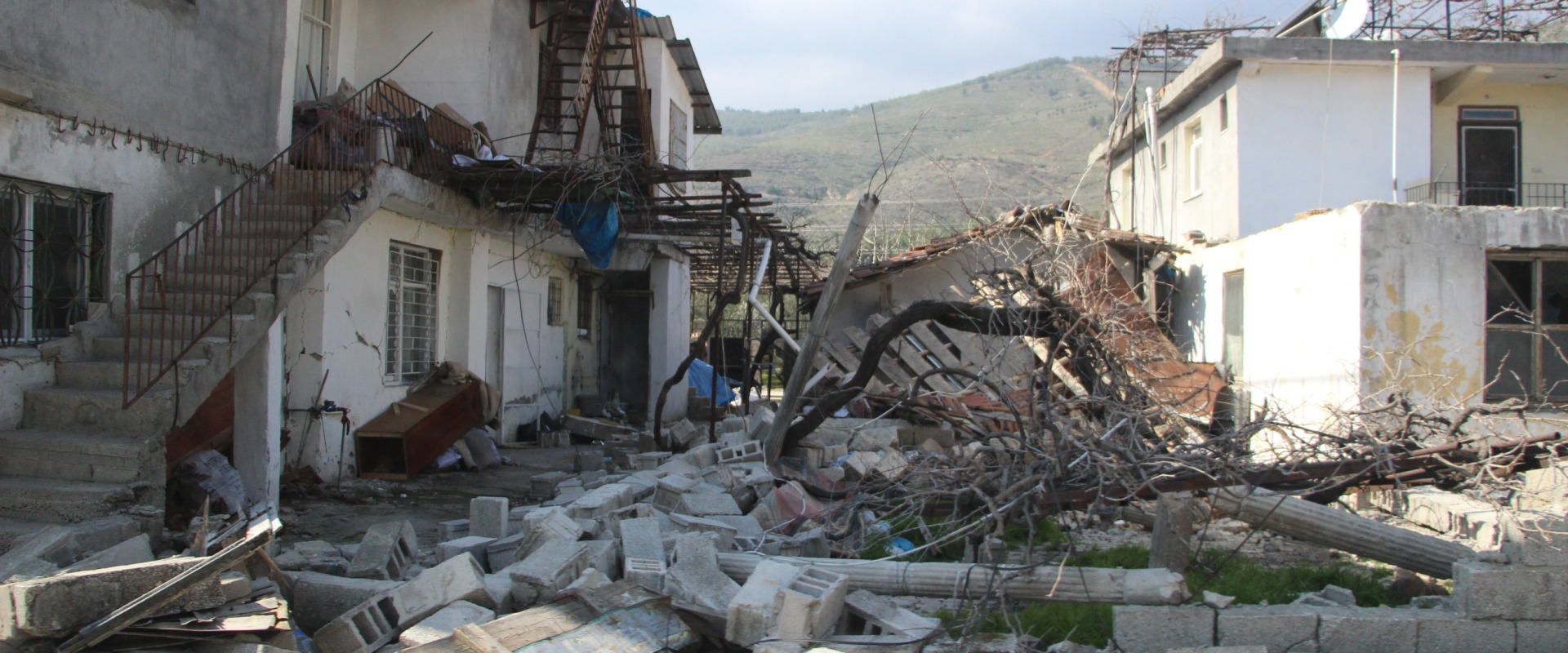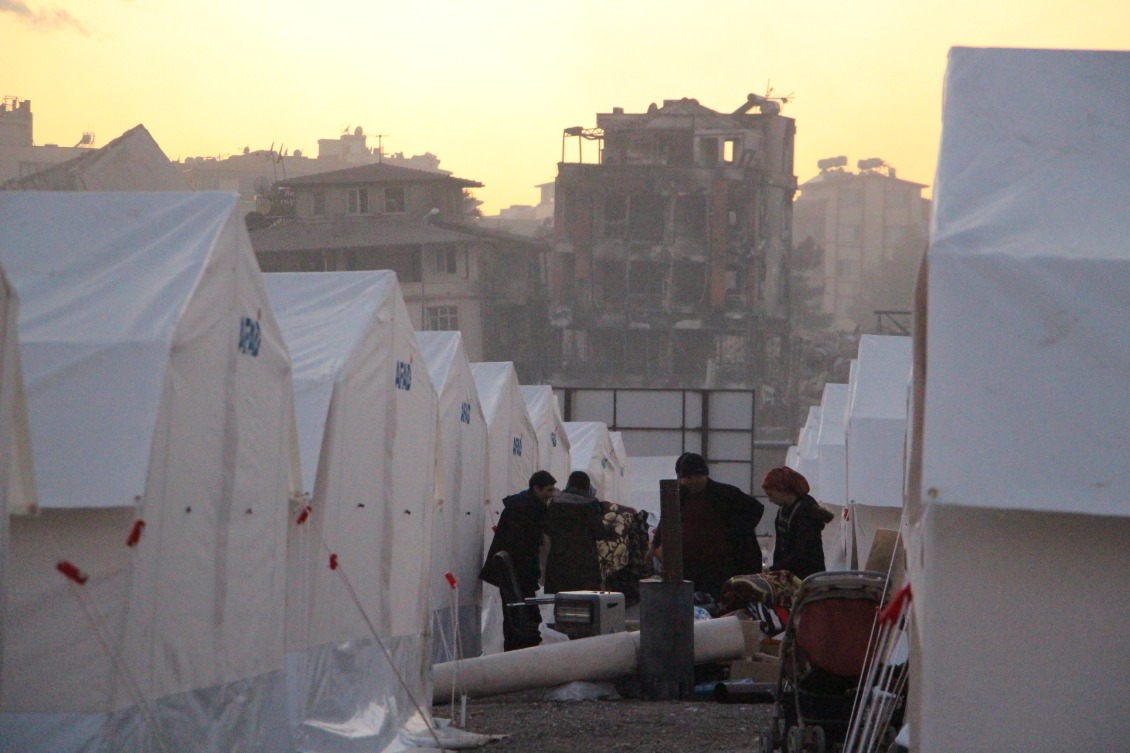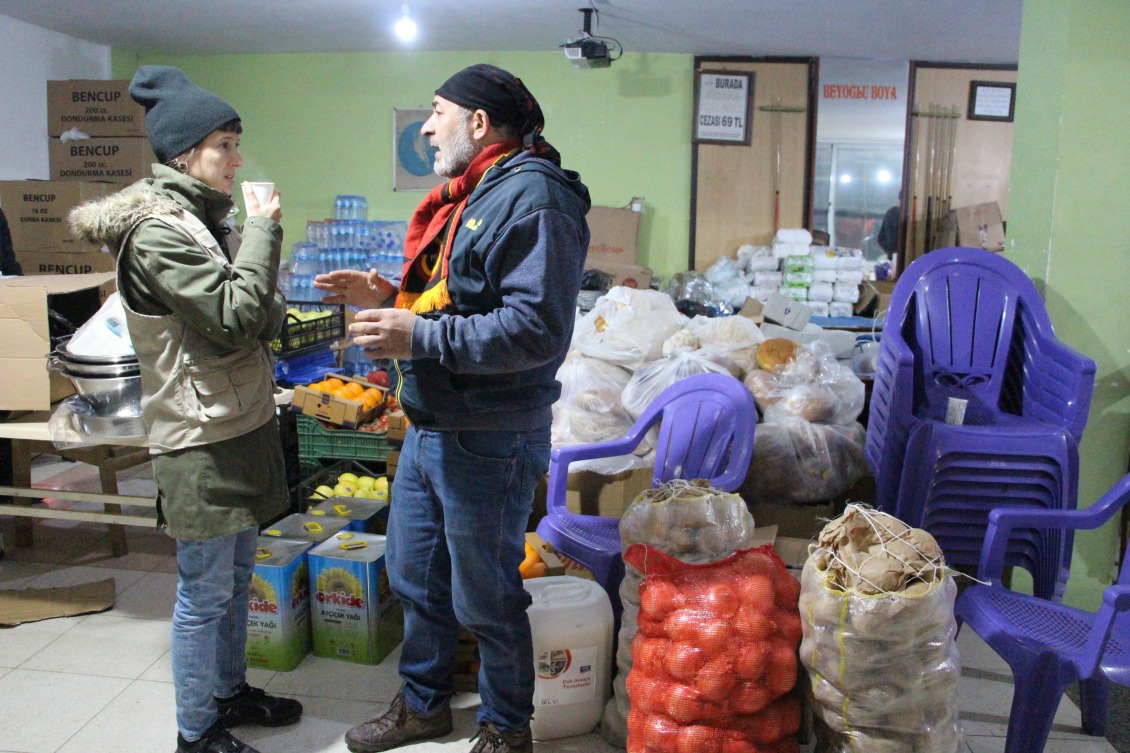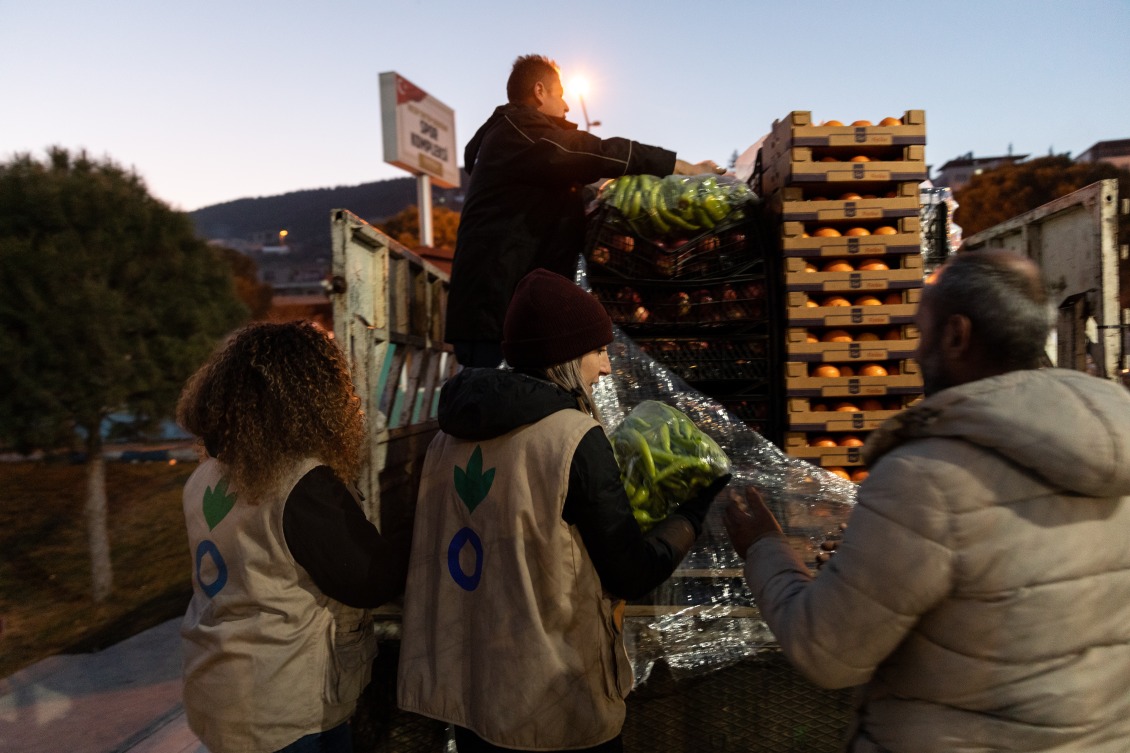
GIVE THIS RAMADAN

Last week, two earthquakes of magnitude 6.4 and 5.8 hit southeastern Turkey near the border with Syria, just two weeks after twin earthquakes devastated the region and killed thousands. In the last few weeks alone, survivors have undergone more than 3,000 aftershocks. The destruction and death have resulted in severe trauma, and families struggle every day to cope with fear.
Action Against Hunger’s teams are on the ground responding to urgent mental health care and psychosocial support needs. When disaster hits, we know how important it is to address mental health and provide longer-term support.
“In emergencies like this, people suffer a lot of human and material losses and have to change all their plans from one day to the next. They don’t know if they’re going to be able to eat or where they’re going to sleep,” says Silvia Rodríguez, one of Action Against Hunger’s psychosocial experts who was recently deployed to Turkey.
“This has a huge impact on their mental health and wellbeing. We know that the number of people who will need long term specialized help will be reduced if they receive support from the beginning.”

“The most typical reactions in an emergency, especially in the first weeks, are symptoms of depression, anxiety, and sleep disorders,” Rodríguez adds. “If people are unable to sleep for a week, this will affect their ability to look after themselves, eat properly or take part in community activities.”
Emergency responses that include psychosocial care are essential to protect the mental health and wellbeing of both survivors and first responders. This support can take many forms, including counseling, support groups, and activities where survivors can contribute to the community and stay active.
The damage caused by the earthquakes forced people to lose their homes, jobs, and livelihoods. Now, food is even more difficult to access, which only adds to the stress of daily life after a disaster.
Action Against Hunger provides ready-to-eat food rations to people affected by the earthquake to help them reach their recommended daily number of calories. Our teams also started a community kitchen in a village near Kahramanmaraş, southern Turkey, which gives 3,000 people each day the chance to cook their own food. The kitchen is mainly run by volunteers who survived the earthquakes, who find support and community connection in their work.

“People who were in vulnerable situations before the earthquake took place are now at a higher risk of not being able to meet their basic needs, including food,” says Cristina Izquierdo, Nutrition and Health Coordinator for Action Against Hunger’s Emergency Team. She has been in Turkey since the day after the first earthquake hit.
“Moreover, those who were in a financially stable situation might not be able to, at least temporarily due to the shock, access markets due to disrupted food supply chain. Ensuring they have access to sufficient and nutritious food reduces their distress by making sure they can feed themselves and their family members, especially their children, leaving them room to focus on other pressing needs, such as finding shelter.”
As with any disaster, Action Against Hunger has been adapting our emergency response to align with the local context and culture. Typically, food aid baskets include non-perishable goods like canned vegetables and fruits—foods not part of the usual diet in Turkey and Syria. Our team is helping people receive a more diverse selection of foods, including fresh vegetables, fruit, oil, olives, grains, and yogurt, as well as high-protein items like chickpeas, chicken, and tuna, which are all common items in a Mediterranean diet.

“After a devastating experience, many people feel hopeless,” says Rodríguez. “The community kitchen in Kahramanmaraş is an excellent example of how being involved in food distribution and preparation can strengthen the social network, build a sense of community, and make people feel involved in the response effort.”
With food becoming more difficult to access, malnutrition rates are expected to increase.
“The nutrition status of people affected by the earthquake, including pregnant women, breastfeeding women, and children under five—especially thosewho are already malnourished—is expected to significantly deteriorate,” says Haidi Sadik, Deputy Country Director for Action Against Hunger in Syria.
To reduce and prevent this, Action Against Hunger continues to implement health, water, sanitation, and hygiene programs. We have also launched malnutrition screening programs and emergency feeding for infants and young people.
“Women in shelters may no longer feel safe to breastfeed, and combined with a reported prevalence of poor breastmilk substitutes in shelters – which do not give children the same level of protection against life-threatening illnesses – safe and effective breastfeeding could be jeopardized,” says Sadik.
In both Turkey and Syria, Action Against Hunger and our Turkish partner organization, Support to Life, are creating safe spaces for displaced mothers and children—places where they can come together to play, bond, and receive mental health and nutrition support.
Action Against Hunger has been working in Syria since 2008. In 2021, our teams reached more than one million people in Syrian communities affected by multiple crises with water, sanitation, hygiene, health, nutrition, food security, and support programs for livelihoods, working both on emergency interventions and supporting long-term resilience building.
Join our community of supporters passionate about ending world hunger.